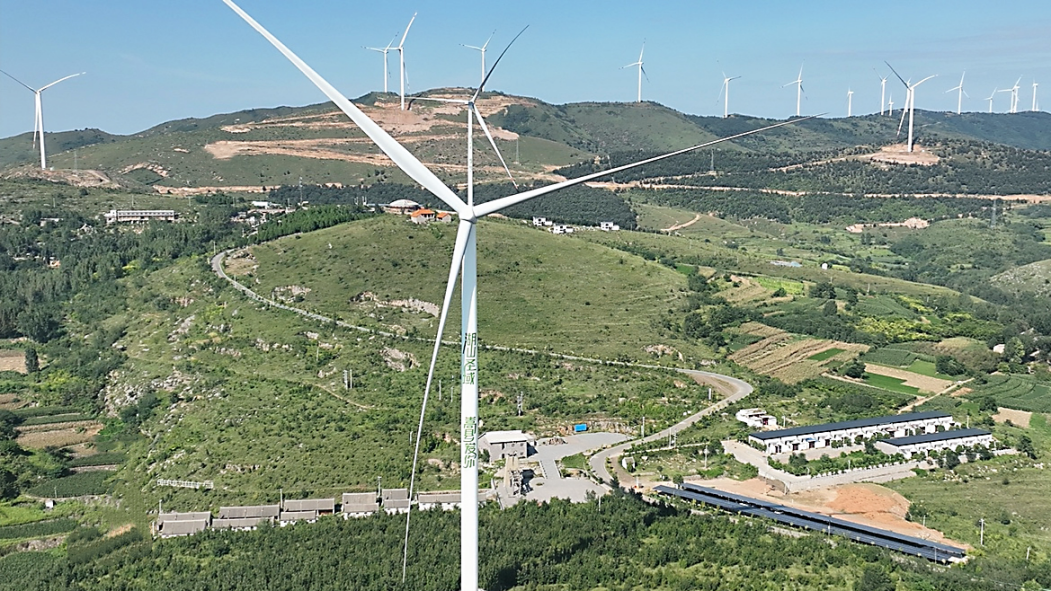The deep integration of the rural revitalization strategy with the mechanism for realizing the value of ecological products represents an innovative practice in implementing the concept that "lucid waters and lush mountains are invaluable assets". It promotes the preservation and appreciation of rural ecological resources and achieves green, high-quality development in rural areas. CECEP is committed to thoroughly exploring the value of the abundant ecological resources in rural regions and actively pioneering new pathways for rural revitalization by combining ecology and industrialization. By selecting and studying a series of practical cases that are typical, innovative and achieving remarkable results in rural areas + ecological product value realization, CECEP aims to facilitate the implementation and success of ecological product value realization models across broader rural landscapes. This effectively empowers comprehensive rural revitalization and fully demonstrates CECEP’s mission and leadership in serving major national strategies.
Case 1: Practicing the Two Mountains Theory, Assisting Song County in Realizing the Value of Ecological Products
In its targeted assistance work in Song County, Luoyang, Henan Province, CECEP has focused on leveraging its strengths to meet Song County’s needs. Key initiatives include wind power projects and carbon sink resource development projects, such as the 100 MW wind farm in Jiugao Town, the "Wind Energy Deployment in Thousands of Towns and Villages" distributed wind power project, forestry carbon sinks, soil and water conservation carbon sinks, and energy-saving town livelihood projects. These efforts have helped Song County achieve a breakthrough in converting ecological product value. The 100 MW wind farm in Jiugao Town is expected to generate over 230 million kWh of green electricity annually, equivalent to saving 88,000 tons of standard coal and reducing carbon dioxide emissions by 215,000 tons. With annual sales revenue exceeding RMB 70 million, it directly creates over 150 local jobs. The forestry carbon sink project involves 80,000 farmers across 16 townships in Song County, generating an estimated 100,000 tons of carbon units annually and converting ecological value into economic value worth RMB 10 million. This dual benefit of ecological and economic gains injects strong momentum into Song County’s comprehensive rural revitalization and sustainable development.

CECEP's 100 MW Wind Farm Project in Jiugao Town, Song County
Case 2: Complementary Fishery, PV and Agriculture, Creating Ecological and Economic Win-Win
CECEP’s 70 MW photovoltaic smart agriculture comprehensive demonstration project is located in Yantao Village, Lvshan Township, Changxing County, Huzhou City, Zhejiang Province. Covering an area of over 2,000 mu, the project integrates photovoltaic power generation with smart agriculture. It consists of a 50 MW aquatic-photovoltaic complementary section and a 20 MW agricultural-photovoltaic complementary section. Adhering to the principle of ecological priority and green development, the project uses integrated photovoltaic technology to combine renewable energy development with agricultural and fishery production. It fully taps into the potential of ecological material products (energy) in agricultural areas, successfully reshaping the value chain of traditional agricultural production. The project is expected to generate 76.09 million kWh of electricity annually, reducing standard coal consumption by 21,000 tons and carbon dioxide emissions by 64,000 tons. Ecologically, the project generates ecological value worth RMB 2.29 billion throughout its construction and operation cycle. Socially, it provides over 100 jobs for villagers, offering strong support for regional green, low-carbon development and the implementation of the rural revitalization strategy.